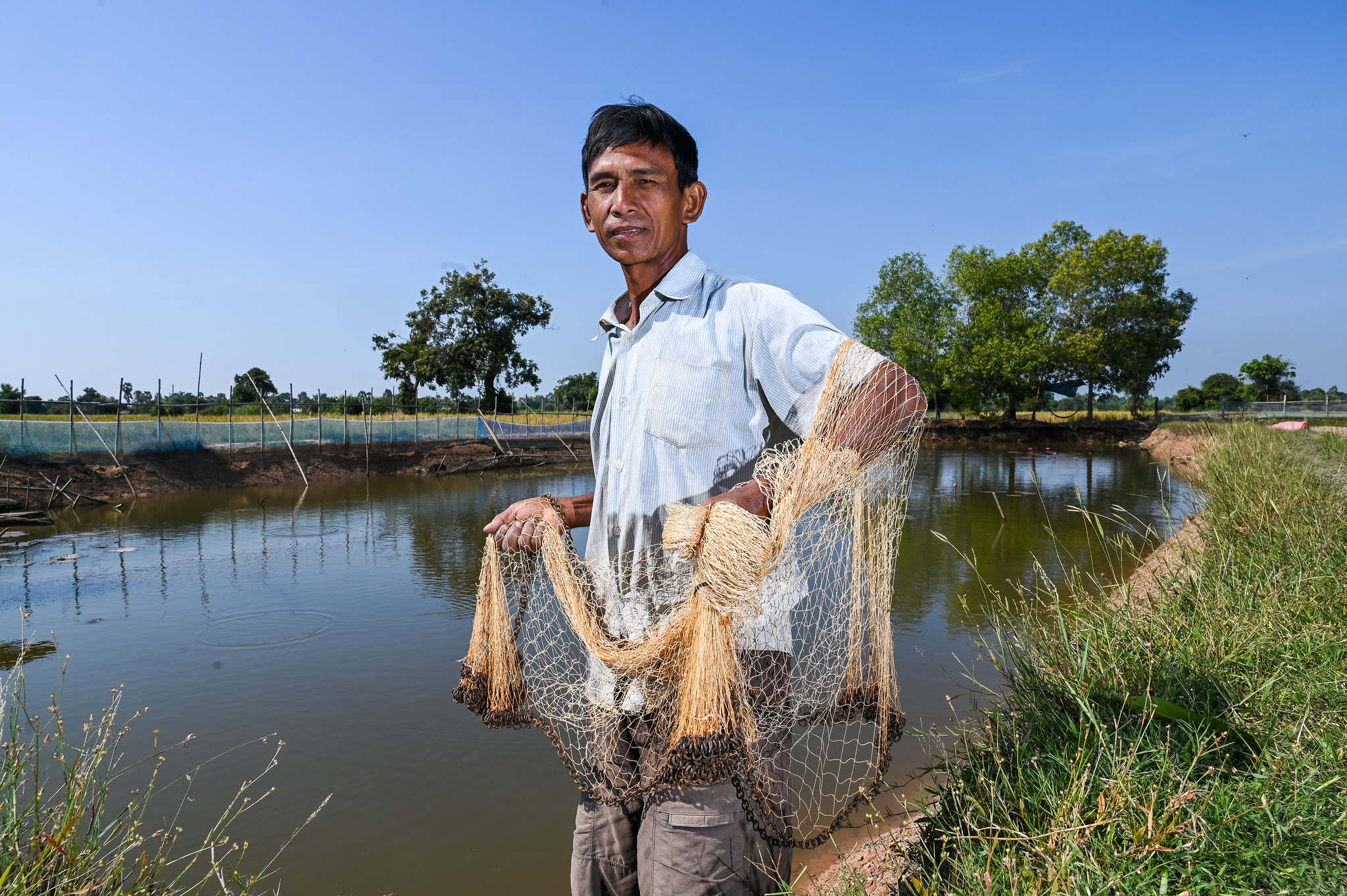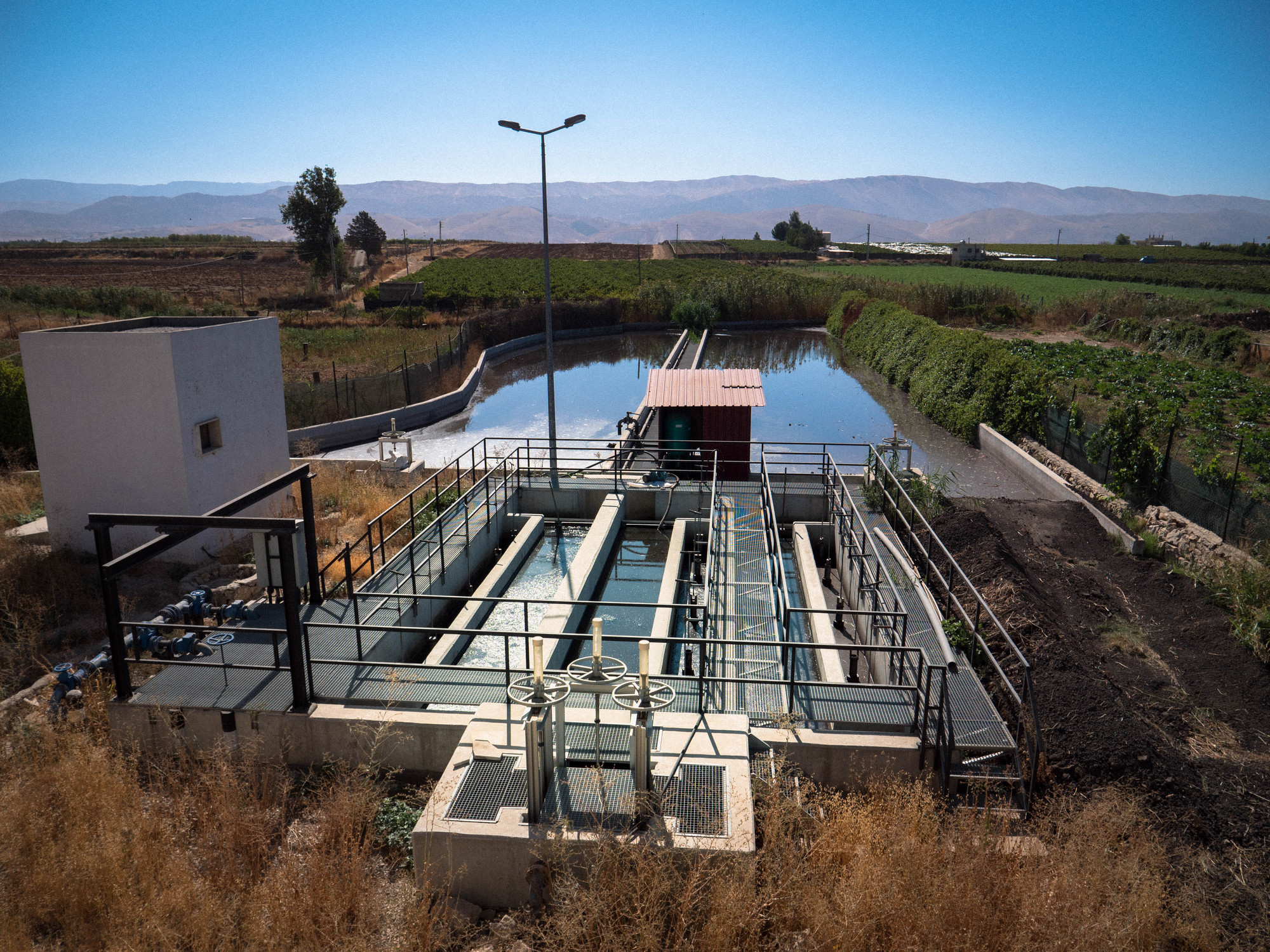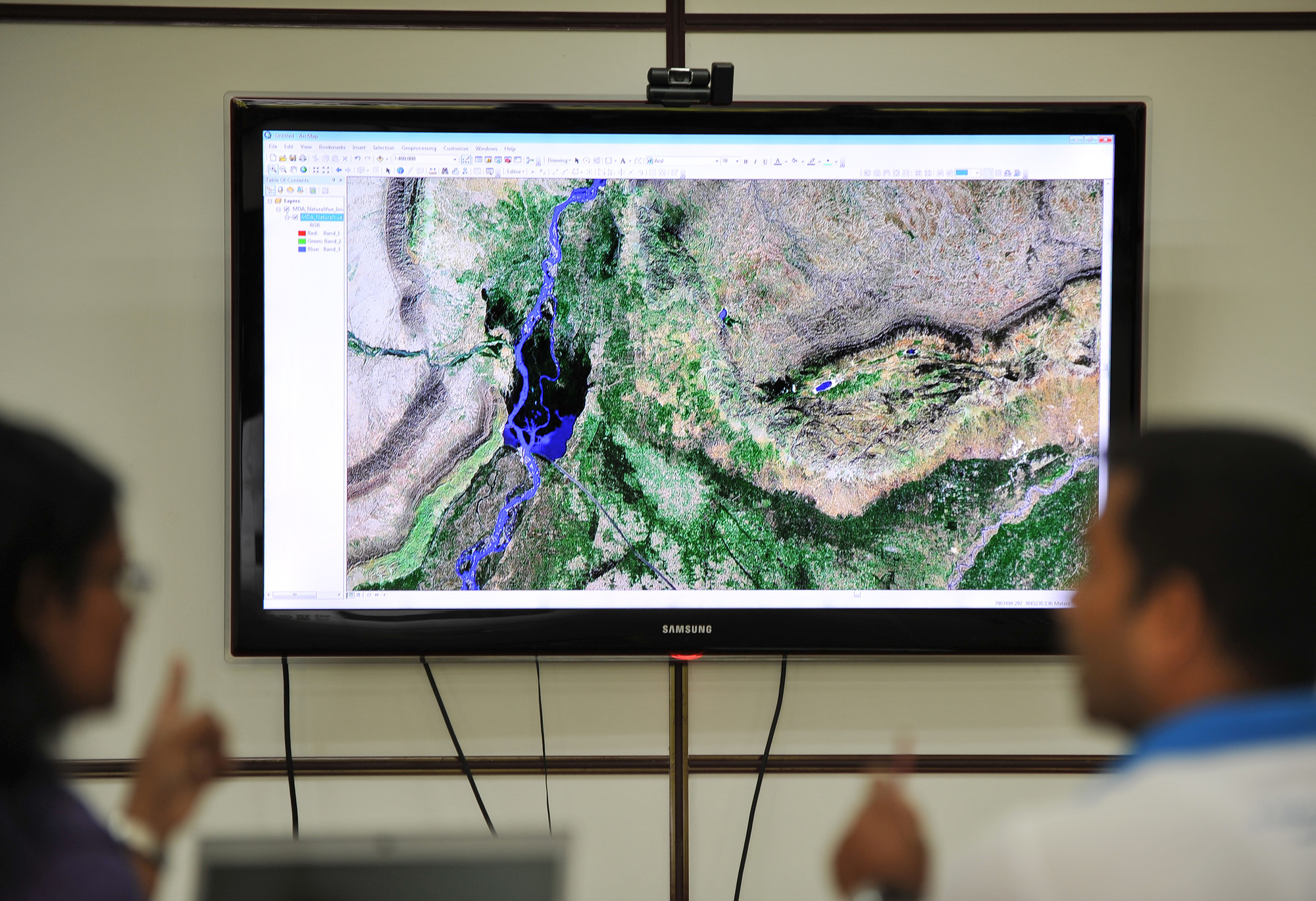Nutrition, health and food security
IWMI’s policy and technical innovations promote a food and water secure future. Our work improves irrigation and allows farmers to grow a more nutritionally diverse set of crops. Better water resources management also encourages more equitable access to sanitation and hygiene, critical for public health systems. Our projects cover topics such as farmer-led irrigation, where smallholders invest in wells and pumps to take control of irrigating their crops, and the use of satellite data to map water resources at the regional level.
Fish-friendly irrigation systems
A new guide on the benefits of integrating fisheries into irrigation systems was published in 2020. Devised by multidisciplinary researchers from the Food and Agriculture Organization of the United Nations (FAO), WorldFish and IWMI, the guide provides technical, management and governance options for planning and managing irrigation systems to prevent the negative impacts and enhance fisheries and irrigation in Africa and Asia.

IWMI and partners worked closely with people on the ground to understand what they need from irrigation. This enabled us to develop business models that governments and the private sector take seriously, so that better use of water systems can lead to better nutrition, health and food security.
Inland fisheries are a primary source of livelihoods as well as food and nutrition security for many people in low- and middle-income countries. Farm irrigation infrastructure can have a negative impact on aquatic food and their habitats, which is why irrigation systems should be designed taking into account the importance of fish for food and nutrition security. This ensures that migration routes remain unblocked and fish can move freely between preferred habitats. The guide was developed based on evidence that the integration of fisheries in irrigation systems can be a positive nature-based solution that benefits both fishers and farmers.
Described as a guide for ‘water planners, managers and engineers’, it highlights the importance of fisheries and emphasizes the opportunities it can provide to increase food production and economic returns, enhance livelihoods and public health outcomes, and maintain key ecosystem services.
The guide explores opportunities to expand fisheries without impacting the efficacy of irrigation, and offers practical scenarios and screening criterion for irrigation and fishery enhancement projects.
The user-friendly guide could help communities and decision-makers to develop holistic and climate-smart irrigation systems. They could also help to ensure that local stakeholders are engaged, in part through participatory governance systems, to gauge impacts and opportunities at all levels, emphasizing the importance of institutions for translating eco-technical investments in fisheries into inclusive development outcomes. This allows the benefits from fisheries and increased agricultural productivity to be more equitably distributed, all the while integrating the protection of fish and land into new irrigation systems.
Reusing treated wastewater for agriculture
Managing water scarcity is equally important for nutrition, health and food security in the Middle East and North Africa (MENA) region, where droughts are becoming more frequent and severe, and groundwater is already depleted in many places.

At the same time, the demand for water is increasing as a result of growing populations and economic development. Therefore, the reuse of treated wastewater is one option that could be considered. ReWater MENA, a four-year regional project funded by the Swedish International Development Cooperation Agency (Sida) and led by IWMI, was implemented in 2018 to expand the safe use of wastewater in Egypt, Jordan and Lebanon. The project uses inclusive and participatory engagement with stakeholders to support the development and uptake of results.
Wastewater is widely used for agriculture in much of the MENA region. In 2020, a baseline assessment showed, for example, that there are 450 wastewater treatment plants across the country, and Egypt has long permitted the direct use of treated wastewater in agriculture. However, this was limited to economically important trees such as olive and some crops, which are grown close to wastewater treatment plants. Most wastewater, however, is mixed with agricultural drainage water and distributed through an irrigation network.
In Egypt, Jordan and Lebanon, farmers who have relatively poor access to water resources do not like to use this ‘indirect’ wastewater because of its uncertain quality. The water may be more or less saline and may contain other chemicals such as pesticides or fertilizers from upstream users. According to farmers, the stigma associated with wastewater use makes it harder to sell their produce. The ReWater MENA project is developing safe options for treated wastewater reuse. The goal is to increase the interest of farmers and persuade investors by proposing good business models. Ultimately, not only will a reliable source of high-quality treated wastewater contribute to improved cropping patterns, and thus to food and nutrition security, but it will also allow freshwater to be saved for domestic use before being used for agriculture. In addition to the individual projects implemented in these three countries, the ReWater MENA project has been documenting the state of wastewater reuse in the region, in order to learn lessons from past models, challenges and innovations. Researchers are hoping that the regional focus will accelerate the scaling up of wastewater reuse practices at an international level.
In 2020, as part of the ReWater MENA project, regional trainings were conducted in Egypt, Jordan and Lebanon in cooperation with the Arab Countries Water Utilities Association (ACWUA). These trainings are still continuing today with the help of a team of IWMI researchers. Aiming to build capacities of experts and other stakeholders on the safe use of wastewater, the trainings covered a broad range of topics, including gender integration, governance, safety, economic feasibility and technologies, and were attended by more than 50 participants from 17 countries.
Remote sensing tools for water management in Africa
Effective water management requires good historical and current data. Advances in satellites, science and computing mean that large amounts of data can be collected through remote sensing techniques and then applied to practical problem-solving on the ground.
 In 2020, IWMI launched the Water-Secure Africa (WASA) Initiative with the aim of accelerating this data collection process. IWMI partnered with Digital Earth Africa, a cloud-based Open Data Cube which provides free analysis-ready data for the African continent.
In 2020, IWMI launched the Water-Secure Africa (WASA) Initiative with the aim of accelerating this data collection process. IWMI partnered with Digital Earth Africa, a cloud-based Open Data Cube which provides free analysis-ready data for the African continent.
IWMI’s focus is on developing scalable applications that remotely senses data from the cloud and turns this into relevant information that can be used for decision-making by a variety of stakeholders. Currently, IWMI is working on flood and drought vulnerability mapping and prediction applications. These could help everyone, from national policy makers to local farmers, to better understand the potential risks of floods and droughts and react earlier to their potential onset.
Both types of applications provide data and insights that will contribute to increasing food and nutrition security.
IWMI is also working on water accounting applications that support governments, river basin authorities and others to better understand basin- or catchment-level water dynamics. This could help to plan how best to expand agricultural productivity at the larger scale or manage water-related trade-offs between different users.
WASA, through the generous support of the Leona M. and Harry B. Helmsley Charitable Trust, is initially working in Burkina Faso, Ethiopia, Ghana and Zambia, but will be looking to expand both its geographic footprint and range of applications in future phases of the initiative.
